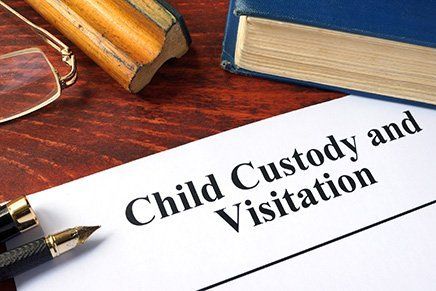Do You Suspect a Child Is Not Yours?
Admin • July 27, 2017
If you have a child you suspect may not be yours, do not do anything else until you read Florida Statute §742.18. http://www.flsenate.gov/Laws/Statutes/2013/742.18.
By Florida Law if a child is conceived during an intact marriage, then the child is presumed to be legitimate. This means that the Husband and Wife are presumed to be the child's legal parents. The operative word here is "intact". If the couple is separated, such as in the case of a married couple after a divorce petition is filed, then this is not considered to be an "intact" marriage. If under this scenario, the Wife gets pregnant by a man other than the Husband, then the biological father in that case would have legal standing to bring a paternity action.
Otherwise, the biological father would not have legal standing to bring a paternity action if the child was born during an intact marriage, even if he proves he is the biological father, if the Husband chooses to accept paternity.
However, in some cases, the Husband may not want to accept paternity. In such a case, if he discovers new evidence that he is not the legal father, such as a loveletter from the biological father mentioning a sexual affair with the wife, then he may take legal action to disestablish paternity. However, if after discovering this new evidence, he takes certain actions towards caring for the child, as otherwise described more fully in the statute, he may waive his right to disestablish paternity. This also goes for cases in which an unmarried biological father first accepts paternity, and the discovers new evidence that he may not be the father as well.
If you have a suspicion that you may not be the father of the child, speak now or forever hold your peace. Because if you have the suspicion now, and then you seek to legitimize the child, or accept paternity, you cannot claim later that your suspicion is newly discovered evidence. I represented a Mother in just such a case. The Father knew when they were dating that she may not have been the child's father. But he wasn't sure. He decided it really didn't matter to him, and he married the Mother, and then added his name to the child's birth certificate.
When the Mother then later sought child support from him, he got a DNA test, and sought legal relief in the form of a Petition to Disestablish Paternity pursuant to -section 742.18 Fla. Stats. I filed Motion to Dismiss on behalf of the Mother alleging primarily that he did not have newly discovered evidence, and that in any event, he took actions to care for the child after knowing he might not have been the Father, and by so doing prevented the biological father from asserting his paternal rights. The Trial Court granted my Motion to Dismiss, and the Father was forced to pay child support for the child. The Father appealed to the First District Court of Appeals, and the Trial Court's ruling was upheld. Now as a result of his actions, he must pay child support for a child who is not his biologically. See Quaintance v. Hooks, 71 So.3d 908 (Fla 1st DCA 2011).
At Gerald Wilkerson Law, we can advise you of the appropriate steps to take whether you are the Father, or the Mother in cases such as these.

Marriage is a partnership that requires a serious commitment. In many cases, marriage is a wonderful and pleasant partnership. Unfortunately, around half of all marriages in the United States end in divorce. The dissolution of a marriage can be physically, emotionally and financially disturbing, but divorce may be a smart option for some couples. If children are involved, moving through the divorce process can be a bit more difficult. From child support to custody agreements, it is easy to see how going through a divorce involving children could be very stressful. Fortunately, you can reduce the overwhelming challenges of a custody agreement during your divorce proceedings. With the help of your legal team , you can avoid these costly mistakes people make during custody battles.

In the United States, marriage and divorce are largely regulated on the state level. Though there are some federal laws and statutes governing marriage, a number of laws and policies vary between states. So, if you are considering filing for divorce in Florida, there are a few intricacies of this state's laws and procedures with which you should be familiar. Florida Uses the Term "Dissolution of Marriage" To Refer to Divorce In some states, the term "dissolution of marriage" is used to indicate something different from divorce, or perhaps to refer to a divorce granted under certain circumstances. This is not true in Florida. Rather, the terms "divorce" and "dissolution of marriage" are synonyms under Florida law, and you will see and hear both terms used interchangeably.

Question: What are the steps to take to protect your paternal rights if you believe that a woman is carrying your child, or if you believe a woman gave birth to your child? Answer: If you are an unmarried biological father, or suspect that a female may be carrying your child, you should take the following steps to protect your paternal rights, and to prevent the Mother from allowing someone else to adopt the child: A) The first thing you should do is to register with the Florida Putative Father Registry. You can find that by clicking this link: http://www.doh.state.fl.us/planning_eval/vital_statistics/putative.htm

